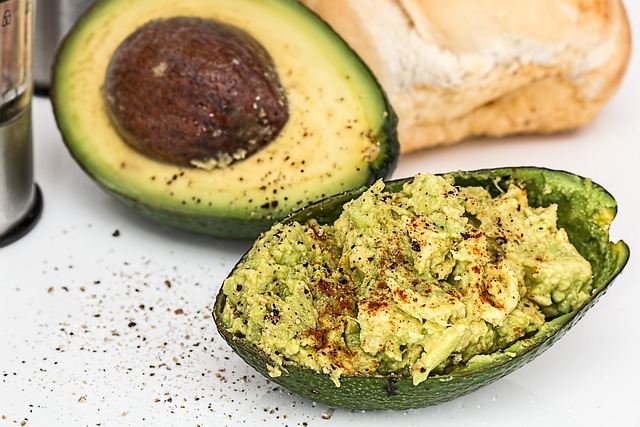In today’s fast-paced world, the convenience of dining out often competes with the tradition of cooking at home. While both options have their merits, understanding the benefits of preparing meals at home versus eating out can help you make healthier, more cost-effective, and environmentally conscious choices. From improved nutrition to fostering stronger relationships, cooking at home offers a range of advantages that go far beyond just saving money.
1. Healthier Eating Choices
One of the most significant benefits of cooking at home is the ability to control what goes into your food. When you dine out, you’re often unaware of how dishes are prepared or the quality of ingredients used. Restaurants frequently rely on excessive salt, sugar, unhealthy fats, and processed ingredients to enhance flavor, which can negatively impact your health over time.
Why Cooking at Home Is Healthier:
- Portion Control: Restaurant portions are typically larger than necessary, leading to overeating. At home, you can serve yourself appropriate portions.
- Fresh Ingredients: You can choose fresh, whole foods like vegetables, lean proteins, and whole grains instead of relying on pre-packaged or frozen items.
- Customization: Tailor recipes to meet dietary needs, such as reducing sodium for heart health or avoiding allergens like gluten or dairy.
By cooking at home, you empower yourself to create meals that align with your nutritional goals, whether that’s losing weight, managing chronic conditions, or simply maintaining a balanced diet.
2. Cost Savings
Dining out can quickly add up, especially if it becomes a regular habit. A single meal at a mid-range restaurant may cost significantly more than an entire week’s worth of groceries. Over time, these expenses can strain your budget unnecessarily.
How Cooking at Home Saves Money:
- Bulk Buying: Purchasing staples like rice, beans, pasta, and spices in bulk is far more economical than ordering individual servings.
- Leftovers: Preparing larger batches allows you to enjoy multiple meals from one cooking session, minimizing waste and effort.
- No Hidden Fees: Unlike restaurants, where taxes, tips, and delivery fees inflate costs, cooking at home keeps expenses transparent.
For example, a $15 takeout salad could easily be replicated at home for less than $5 using fresh produce and homemade dressing. These savings accumulate over months and years, freeing up funds for other priorities.
3. Strengthening Relationships and Building Skills
Cooking at home fosters connection—both with loved ones and with the food itself. Sharing the experience of meal preparation can strengthen family bonds or provide opportunities to bond with friends and partners. It also encourages creativity and skill development, turning cooking into a rewarding hobby rather than a chore.
Social and Emotional Benefits:
- Quality Time: Working together in the kitchen creates memories and promotes teamwork. Kids who participate in cooking learn valuable life skills while feeling involved.
- Mindfulness: Preparing meals allows you to slow down, focus on the process, and appreciate the effort behind each dish.
- Culinary Confidence: The more you cook, the better you’ll become at experimenting with flavors, techniques, and cuisines, boosting self-esteem and satisfaction.
In contrast, dining out tends to emphasize consumption over connection, making it a passive activity rather than an engaging one.
4. Environmental Impact
Eating out contributes to environmental degradation through increased packaging waste, energy usage, and transportation emissions associated with restaurant operations. Cooking at home gives you greater control over your ecological footprint.
Eco-Friendly Practices:
- Reduced Waste: By planning meals and using reusable containers, you minimize food waste and single-use plastics.
- Local and Seasonal Ingredients: Shopping at farmers’ markets or choosing seasonal produce supports sustainable agriculture and reduces carbon emissions from long-distance shipping.
- Energy Efficiency: Home kitchens generally use less energy compared to commercial kitchens, which require industrial-grade appliances running all day.
Making environmentally conscious decisions not only helps the planet but also sets a positive example for others.
5. Convenience Myths Debunked
Many people assume that cooking at home takes too much time and effort compared to grabbing takeout or dining out. However, this isn’t always true. With proper planning and smart strategies, home-cooked meals can be just as convenient—and far more satisfying.
Tips for Streamlining Home Cooking:
- Meal Prep: Dedicate a few hours each week to preparing ingredients or full meals in advance. This makes weeknight dinners quick and stress-free.
- Simple Recipes: Focus on easy-to-make dishes with minimal steps and ingredients, such as stir-fries, sheet pan meals, or grain bowls.
- Kitchen Tools: Invest in gadgets like slow cookers, air fryers, or Instant Pots to simplify cooking processes.
Additionally, the act of cooking itself can be therapeutic—a welcome break from the demands of daily life.
When Dining Out Makes Sense
While cooking at home offers numerous benefits, there are situations where dining out is perfectly reasonable. Special occasions, social gatherings, or treating yourself after a long week are valid reasons to enjoy a restaurant meal. Moderation is key; striking a balance between home-cooked meals and occasional outings ensures variety without compromising your health or finances.

Leave a Reply